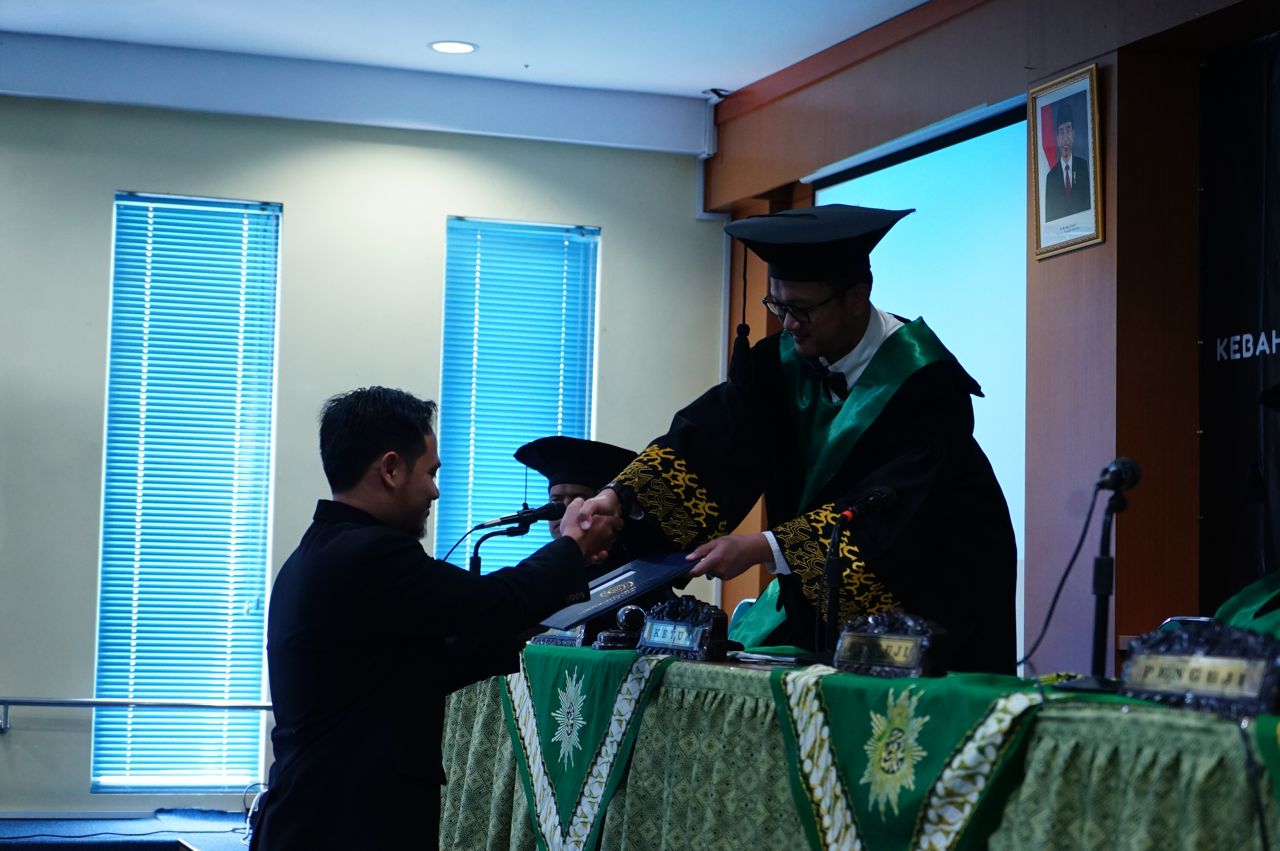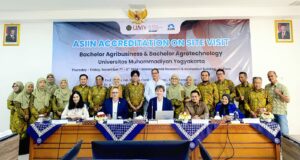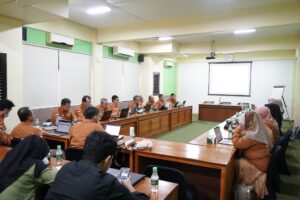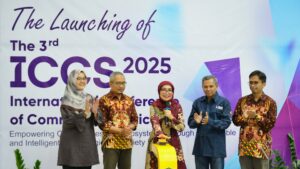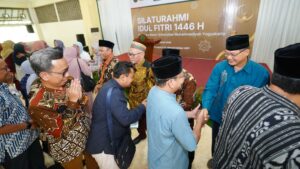Happiness is one of the basic needs of humans in life. Anyone will do everything they can to achieve happiness. To understand that phenomenon, Wahyudi Setiawan, a student of Universitas Muhammadiyah Yogyakarta (UMY)’s Islamic Psychology Education (PPI) Postgraduate Program wrote a dissertation titled “Happiness According to Hamka in Al Azhar Tafsir from the Perspective of Islamic Psychology Education”.
“In this study, we concluded that there are multiple levels of happiness within a person. Said levels consist of physical, mental, and spiritual happiness. According to Hamka, the concept of happiness consists of a psychological, social, spiritual, and religious side that fit a human’s primary needs,” Wahyudi stated during his Doctoral Promotion Session on Saturday (10/8) in UMY Central Campus’ Postgraduate Building.
In addition, Wahyudi also stated that physical happiness can be achieved when receiving sensations that suit one’s senses or physical parts. The eyes see, the tongue tastes, and the nose can smell scents. Meanwhile, mental happiness is a sensation that someone feels that fits their heart and mind. One can be said to be mentally happy when they understand who they are, along with their rights and responsibilities in life. Spiritual happiness is the end of a human’s journey through life. It is the essence of life because someone who achieves this state is no longer affected by his or her external and internal conditions because they are happy inside.
“The concept of happiness according to Hamka in the Al-Azhar Tafsir contains three stages, and happiness is like life to humans. Every living being is bound for happiness,” he added.
This research is relevant to modern human life which is currently entering the 4.0 Industrial Revolution. Hamka’s concept of happiness which focuses on the psychological, spiritual, and religious aspect is very different from the “Western” concept of happiness where it is always related to wealth and material possession.
Wahyudi hopes that this research can contribute to social living and Islamic Psychology Education sciences. “May we all understand the meaning of happiness and continue living with it in our lives,” He added. (ak)
